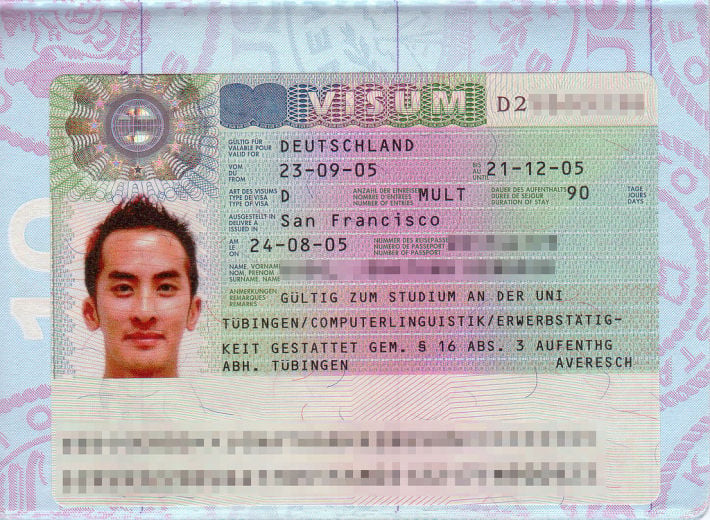Study Abroad: A Guide To Getting Your German Study Visa
Table of Contents
Photo via Jonathan Khoo/Flickr
Congratulations! You’ve decided to give in to your wanderlust and journey to another country for a life changing study abroad experience. After looking into all the options, you’ve settled for the land of Oktoberfest, wurst, autobahns and the Bundesliga. Before you head off to Germany and its amazing universities, it’s time to deal with the important admin. The most crucial step is getting your study visa.
Which Visa?
First figure out which visa you need. You cannot enter Germany on a tourist visa and then convert it to a study visa – you must apply in advance for the correct one There are two types of study visas for Germany:
Student Applicant Visa
If you have not yet been accepted into a German university you can apply for this three month applicant visa, but you’ll have to show proof that you’ve applied to a university. This allows you time to get accepted into a university whilst in the country. It can be extended for a maximum of 6 months. This is a useful visa since German universities grant admission notifications quite late, which doesn’t leave you much time to get your ducks in a row before classes start. After being accepted into the program of your choice, you can then apply for a student visa.
Student Visa
If you’ve applied to a German university and received confirmation that you’ve been accepted (congratulations!), you can apply for your student visa. Note that this visa is only valid for three months. Once you arrive in Germany, you need go to the Alien Registration Office in the town where you’re studying to apply for an extended residence permit.
German Study Visa Requirements
Once you’ve worked out which visa you need, it’s time to apply at the German diplomatic mission in your home country. You will need the following documents to apply for your student visa:
- Valid passport
- Notice of admission into a German university (student visa) or confirmation of application to a German university (applicant visa)
- Proof of adequate funds
- Proof of health insurance coverage
You may also be asked for proof of German language proficiency, or proof that you will be attending a German course.
Check your German proficiency before you apply by taking our German level test.
Remember that requirements may differ depending on your home country. Check with your local German embassy to see what documents you need.
Residence Permit
Within three months of arriving in Germany, apply for your residence permit at your local Alien Registration Office. You will need the following documents:
- Valid passport and current visa
- Student ID from your German university
- Passport photos
- Confirmation of health insurance coverage
- Proof of adequate funds
- Tenancy agreement
- Confirmation of registration from Resident’s Registration Office
- Residence permit fee
This is an essential step for all non-EU students in German. Consult this guide to obtaining your residence permit in Germany for more detailed information. For any other visa questions, see the German Federal Foreign Office’s website.
Und Studieron!
Armed with your German student visa, you are now ready to start studying! It’s time to embark on discovering Germany, falling in love with the culture, the food, the people and the language.
Wanting to achieve German fluency while you’re there? Make sure you get a head start! Contact us to find a German language class near you.



